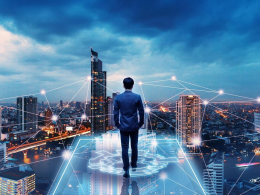The world is changing rapidly, and emerging technologies are playing a major role in driving this transformation. From artificial intelligence to blockchain, these technologies are reshaping the way we live and work. And now, they are poised to revolutionize government services as well.
Here are five ways in which emerging technologies will transform the way governments deliver services to their citizens:
- Artificial Intelligence (AI) and Machine Learning (ML)
AI and ML are poised to transform the way governments deliver services by enabling them to automate a wide range of tasks. This includes everything from answering routine queries to processing complex applications. By leveraging these technologies, governments can reduce processing times and improve the accuracy of their decisions. For example, the Singapore government is using AI to analyze data from sensors and cameras to manage traffic flow in the city-state.
- Internet of Things (IoT)
The IoT is another technology that is set to transform the way governments deliver services. By connecting a wide range of devices, governments can gather data on everything from air quality to traffic congestion. This data can be used to inform policy decisions and improve the delivery of services. For example, the city of Barcelona has deployed a network of sensors to monitor noise pollution, which has enabled it to take targeted action to reduce noise levels in the city.
- Blockchain
Blockchain is a technology that is well-suited to improving the transparency and accountability of government services. By creating a tamper-proof record of transactions, governments can ensure that they are able to maintain a secure and auditable record of all their activities. For example, the government of Estonia is using blockchain to create a digital identity system that enables citizens to access a wide range of government services online.
- Robotic Process Automation (RPA)
RPA is a technology that enables governments to automate repetitive and time-consuming tasks. This includes everything from data entry to customer service queries. By using RPA, governments can free up staff to focus on more complex and high-value tasks. For example, the Australian Taxation Office is using RPA to automate the processing of tax returns, which has enabled it to reduce processing times and improve accuracy.
- Cloud Computing
Cloud computing is a technology that enables governments to store and process data more efficiently. This includes everything from hosting websites to running complex analytics. By leveraging cloud computing, governments can reduce their IT infrastructure costs and improve the speed and scalability of their services. For example, the US Federal Government has created a cloud computing platform called FedRAMP, which enables government agencies to securely store and process data in the cloud.
In conclusion, emerging technologies are set to transform the way governments deliver services to their citizens. By leveraging AI, IoT, blockchain, RPA, and cloud computing, governments can improve the speed, accuracy, and efficiency of their services. However, it is important that governments implement these technologies in a responsible and ethical manner, taking into account the potential risks and ensuring that they uphold the highest standards of data privacy and security.








